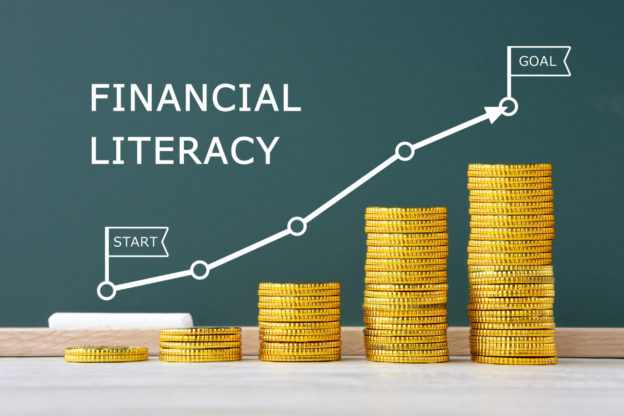In an increasingly complex and interconnected world, financial literacy has emerged as a critical skill that individuals of all ages and backgrounds should possess. Yet, many people still lack a fundamental understanding of how to manage their finances effectively. In this blog, we will explore the importance of financial literacy, its impact on individuals and society, and how you can take steps to enhance your financial knowledge.
Understanding Financial Literacy
Financial literacy is the ability to comprehend and apply financial knowledge to make informed and responsible decisions regarding money management. It encompasses a wide range of financial concepts, including budgeting, saving, investing, debt management, and retirement planning. A financially literate individual can navigate the complexities of personal finance with confidence and prudence.
The Significance of Financial Literacy
- Empowerment: Financial literacy empowers individuals to take control of their financial well-being. It enables them to make informed decisions about their money, reducing the likelihood of making costly mistakes or falling into financial traps.
- Avoiding Debt: Understanding financial principles like interest rates, credit scores, and debt management can help individuals avoid accumulating high-interest debt and falling into financial distress.
- Planning for the Future: Financial literacy is essential for setting and achieving financial goals, whether it’s saving for retirement, buying a home, or funding education. It enables individuals to plan for their future with confidence.
- Economic Stability: A financially literate population contributes to economic stability. When people make sound financial decisions, it reduces the risk of financial crises and fosters a more robust economy.
The Consequences of Financial Illiteracy
Conversely, the consequences of financial illiteracy can be severe:
- Debt and Financial Stress: People who lack financial literacy are more likely to accumulate debt, struggle with credit issues, and experience financial stress. This can negatively impact their mental and physical health.
- Loss of Savings: Without financial knowledge, individuals may struggle to save money or invest it wisely, leading to missed opportunities for growth and financial security.
- Retirement Insecurity: A lack of understanding about retirement planning can result in inadequate savings, leaving individuals financially vulnerable in their later years.
- Consumer Exploitation: Financially illiterate individuals are more susceptible to predatory financial practices and scams, potentially losing their hard-earned money.
Improving Financial Literacy
Enhancing financial literacy is a lifelong journey that requires ongoing effort and commitment. Here are some steps you can take to improve your financial knowledge:
- Education: Seek out financial education resources, such as books, online courses, workshops, and seminars. Many reputable organizations and institutions offer free or low-cost financial literacy programs.
- Budgeting: Start by creating a budget that outlines your income, expenses, and savings goals. Tracking your spending can help you identify areas where you can make adjustments and save more money.
- Emergency Fund: Establish an emergency fund to cover unexpected expenses, such as medical bills or car repairs. This can provide financial security and peace of mind.
- Investing: Learn about different investment options, such as stocks, bonds, and mutual funds. Consider seeking advice from a financial advisor to create an investment strategy that aligns with your goals and risk tolerance.
- Debt Management: If you have debts, develop a plan to pay them off systematically. Focus on high-interest debts first and explore strategies for reducing interest rates.
- Retirement Planning: Start planning for retirement early, even if it seems far off. Contribute to retirement accounts like 401(k)s or IRAs and consider consulting a financial planner to create a retirement roadmap.
- Stay Informed: Keep up to date with financial news and trends. Understanding economic events can help you make informed financial decisions.
The Role of Technology
In today’s digital age, technology plays a significant role in improving financial literacy. Mobile apps and online platforms offer tools that can simplify budgeting, track expenses, and provide educational resources. These digital solutions make it easier than ever to access and manage your financial information.
The Role of Personal and Business Checks
One might wonder how personal and business checks fit into the realm of financial literacy. While these paper-based payment methods may seem outdated in today’s digital age, they offer unique benefits for enhancing financial literacy.
Personal checks serve as practical tools for individuals to enhance their financial literacy in several ways:
- Budgeting: Writing checks requires you to be aware of your account balance, ensuring you have sufficient funds to cover the transaction. This encourages budgeting and helps you understand your financial limitations.
- Record-Keeping: Every check you write leaves a paper trail. This record-keeping is invaluable for tracking expenses, identifying spending patterns, and creating a comprehensive financial history.
- Delayed Gratification: Unlike digital transactions that can be completed in an instant, writing a check involves a deliberate process. It forces you to think twice about your purchases, promoting responsible spending and financial mindfulness.
For businesses, financial literacy is not just essential but can make or break their success. Business checks play a vital role in this context as well:
- Expense Management: Business checks facilitate the systematic recording of expenses and payments. This is crucial for monitoring cash flow, tracking business expenses, and ensuring compliance with tax regulations.
- Accountability: In a business setting, checks help establish financial accountability. They create a clear audit trail, making it easier to detect errors, prevent fraud, and ensure transparent financial transactions.
- Financial Planning: By using checks, businesses can better manage their financial resources, plan for future expenses, and make informed investment decisions. This contributes to long-term sustainability and growth.
Financial literacy is not a luxury; it’s a fundamental skill that everyone should acquire. Whether you’re just starting your financial journey or looking to improve your existing knowledge, the benefits of financial literacy are far-reaching. Empower yourself with the tools and knowledge needed to make informed decisions about your money, secure your financial future, and achieve your financial goals. Financial literacy is a critical skill that can lead to a lifetime of financial security and independence.




